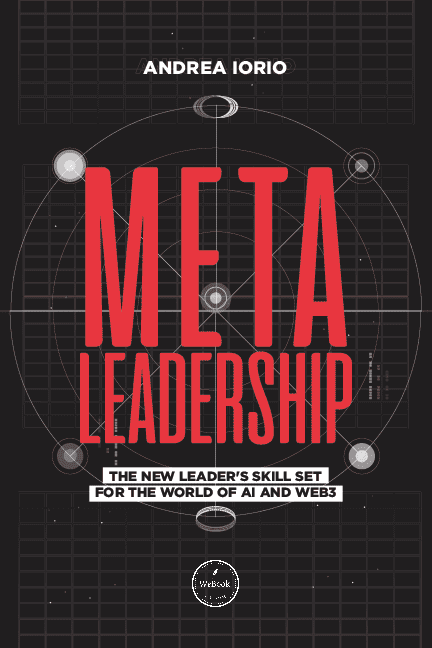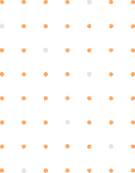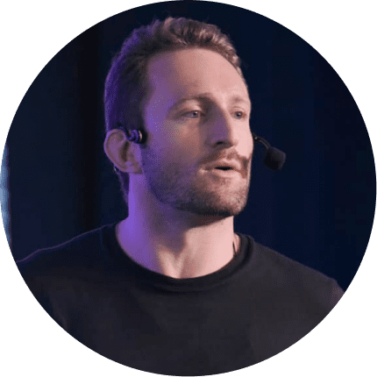Let's imagine the following situation, to start off with: you are the leader of a car insurance company, and you are looking to the future of your company and of the market by designing a strategy of innovation and business transformation based on new technologies.
Your digital transformation strategy is in line with that of companies that are growing in the insurance sector, and where according to a McKinsey study, the investments in technology are growing double-digit each year, with focus on advanced technologies like Artificial (the first), cloud computing (second to Intelligence), and data privacy.
In other words, you are doing everything that is in the Digital Transformation Playbook - which, for me, is perfectly summarized by Sunil Gupta's framework in his book Driving Digital Strategy, that is, digitizing your relationship with the insured, changing the organizational structure to a more agile one, introducing digital tools for process automation, and so on.
But still, you realize that this doesn't solve all your problems. You keep noticing that the data you collect from the customer, for example, is incomplete, not in real time, and a lot of data is not shared (some from the brokers, some from the automaker, and so on).
Also, you notice that the training, whether for your brokers or for policyholders, is not being effective, as they are informative videos (even if on digital platforms) that you are suspecting that no one watches. Consequence of unengaging training? Less sales for brokers and more claims for policyholders.
At the same time, there is still a lot of fraud because not all of its employees are able to go to the place of the accident and check what really happened, as well as this work is expensive and time-consuming.
If you're a fan like me of the movie Fight Club, you'll remember that the main character does just that, traveling around the United States just to check the claims with his own eyes, and minimize the incidence of fraud.
Extremely inefficient, isn't it?
That's why we have to admit that even if the Digital transformation, through today's technologies, is accelerating business, we are still far from solving all its “pains” and barriers.
But what's interesting is that when we look at Web3 technologies and put them in today's business context, they can help solve virtually all of these pains, in every industry, and in every department of the company.
And it is precisely this, the areas of impact of Web3 in traditional companies, that we will talk about in this article.
Let me tell you: I'm a heavy Airbnb user, both as a guest (I've been to wonderful Airbnbs around the world, with my favorite being in South Africa in Cape Town, which I found to be from a super cool photographer who accompanied the Angelina Jolie on her trip to Darfur…it's crazy, you can have extraordinary experiences), at the same time as a host, as today my apartment in Rio de Janeiro is available to rent.
Now, when I get 5-star reviews, I'm happy because I somehow understand that it's going to prioritize me in Airbnb's search results - but I don't know how, when, and I don't understand exactly how it works.
But imagine that hosts and guests earn Airbnb tokens when they receive good reviews. They can use tokens to pay future booking fees or lower commission fees or sell tokens on a secondary market to monetize their rewards for being good participants on the platform.
I would certainly be more engaged and focused on getting better reviews!
Do you realize that Web3 tokenization is already a great means to get better customer relations?
Now, imagine that I'm a fan of an organic salad franchise that I don't have in my neighborhood yet, and that I alone don't have the capital to open a franchise and bring it closer to me. However, this franchise creates a DAO that allows members to vote on where to open new franchise locations and receive income from the profits of the DAO's franchise portfolio. It would be really cool as a side investment, even more so because I know I'll be a regular customer!
Think of a car manufacturer that wants to understand how to optimize its assembly costs and manufacturing lines, and uses “Digital twins” for these simulations… and see that this example exists, thanks to a partnership between Nvidia and BMW:
BMW produces 2.5 million cars a year and 99% of them are customized. With 100 options for each car and over 40 BMW models, there are over 2,000 ways to configure a new BMW.
By creating a digital twin of its factory, Richard Kerris, VP of omniverse at Nvidia, said BMW is able to virtually simulate what it's like to have 300 cars running on a production belt and identify which paths around the factory are safest for employees during their shift.
Lockheed Martin is also using NVIDIA's Omniverse platform. The companies teamed up in November to make a digital twin of wildfire areas in California. Visualizations help fire behavior analysts model their predictions in a complex virtual simulation of the environment, helping firefighters fight fires in real life.
And note that this market for Digital Twins and Metaverse is growing a lot: according to research firm Technavio, the market for digital twins is expected to grow at a compound annual rate of almost 40% between 2020 and 2025, to almost US$ 25 billion.
The truth is that I chose the examples above for 2 reasons: on the one hand to show that a lot of Web3 stuff is already happening in traditional companies, and on the other hand also to show that Web3 can impact several areas within the organization, in fact all of them. .
That's why to analyze the impact of Web3 technologies and concepts on traditional companies, we need to start by mapping the main areas of the company, and looking at the status of the digital transformation of each, to see where we are, and how far we can get with Web3.
Let's start by mapping the main areas, and it's obvious that there will be differences from company to company, but for sake of simplicity, we're going to divide the large areas of a company into: Sales/Marketing; Supply Chain/Operations (for companies that do not work with products but services), R&D/Innovation; Finance; People; IT.
Let's go step by step:
MKTG & SALES: Let's start with the Marketing and Sales part: in particular through NFTs, blockchain and the metaverse, Web3 is changing this area very profoundly through the fact that you will be directly connected to the customers without intermediaries, and in addition, the customers will take control of their data privacy with blockchain, fundamentally making marketing more efficient and transparent. What are, then, the main implications for these areas? 3 in my opinion:
1 - first, is that immersive experiences across the metaverse (such as a show by DJ Marshmello in the game Fortnight) and the portability and interoperability of identities, data and digital goods will make marketing and sales much less transactional, and much more experiential. Here's what Unilever has done recently, as Conny Braams, Chief Digital and Commercial Officer, says: The Sunsilk brand has introduced a city into the virtual world of Roblox, filled with games to inspire and educate girl gamers. Meanwhile, Rexona hosted the first marathon of the metaverse, offering users the chance to customize their avatar wit
h adaptable wearables such as wheelchairs. And Closeup used the power of Web3 to create a place on Decentraland where people can express their love for each other by getting married in the metaverse.
Web3 interoperability makes that annoying fragmentation of identity with many logins, passwords, and the like, that today makes your shopping experiences bad and ineffective, solved and transformed into frictionless experiences:
2- second, that marketing and sales will be much more focused on creating communities: nowadays you have an individual relationship with companies, but let's think about the following situation from Web3: a vineyard in the countryside of Brazil creates a “wine club” ” where for a X annual fee you become a member through an NFT and receive 4 bottles per month. Now, imagine that this wine brand becomes super popular, and its NFT value X doubles in the first 6 months: you can resell it and profit on NFT. Do you realize that you have much more incentive as a customer to participate in the community and not just relate individually and transactionally with the company? This is amazing for customer retention and loyalty.
3 - Third, you can customize to the fullest by keeping customers in control of their data. Today what is the only limiting factor to a 100% personalized experience in sales and marketing? It's obviously the customers' fear of having their data exposed, and owned by brands… at the same time as customers we want unique experiences and relationships: how to do it? Web3, leaving data ownership in the hands of customers, makes this possible: creating experiences where people feel safe, valued and included and back in control of their own data – with proof of ownership, control of how this data is used and how it is monetized.
SUPPLY CHAIN/OPS: When it comes to Supply Chain and operations, Web3 profoundly impacts all of this through the important combination of Metaverse (and Digital Twins) and IoT, 5G, and blockchain. Let me explain myself better, and let's start with the current global moment in terms of the supply chain: there are huge inefficiencies in the global supply chain, to the point that the pandemic has created a huge bottleneck in the movement of goods. Due to the transparency of the blockchain, companies will be able to easily monitor and manage their supply chains in Web 3.0.
Customers can track the location of their products at all stages of the production process using a real-time supply chain view, and smart contracts will reduce friction in business relationships, and even enable interoperability of international and international supply chains across different sectors.
And when all this is coupled with IoT, 5G and the metaverse, the result is extraordinary: you will be able to follow the entire production chain of a product from end to end in real time and in 3D format. This is called Virtual Supply Chains, or VSC, it is a 3D digitized representation of the physical supply chain that can mimic every aspect of it. A VSC can show what is happening, predict the future and identify possible problems that could arise in the event of changes in demand, shortages and other disruptions: it will help a lot in S&OP meetings! The same thing for manufacturing, that is, at the beginning of the supply chain: it will help to minimize accidents and point out points for improvement in maintenance.
R&D/INNOVATION: in the area of innovation and R&D (for companies working with Research and Development), the combination of A.I. and simulations in the metaverse brings about extraordinary results. Imagine that you are a company in the chemical sector, which invests a lot in Research and Development: obviously using the original materials, you have very high costs - which is why companies that focus on product innovation usually spend almost 10% of their revenue on R&D . Now, think about the efficiency and the myriad combinations of molecules that can be generated through Artificial Intelligence, and even the lab automations that can be achieved: an Accenture report shows that more effective lab automation can help reduce time to market to market and increases laboratory quality and reliability while reducing costs by 10 to 25 percent. Coupled with the concept of Digital Twins, you can not only simulate the combinations between molecules, but you can even simulate how the final product will look by applying laws of physics: for example, an additive to lubricants, like the ones my father's company, Italmatch Chemicals, produces, could simulate the viscosity of the final product when used in high pressure situations (something that today would be extremely expensive and difficult to simulate in the laboratory).
FINANCE: well, one of the first impacts that Web3 had most notably was on the financial sector, as it also affects the finance department within companies. Let's start with the main trend that has impacted finance, namely decentralized finance, or DeFi. DeFi, or “open finance” as it is often called, is an umbrella term for a variety of cryptocurrency or blockchain financial applications aimed at taking out financial intermediaries. The DeFi space is truly gigantic: Amberdata research estimates the total amount blocked in DeFi at $239 billion as of April 2022, up 40,000% since the start of 2020 And if I'm a bank, I have to fight the DeFi as it wants to replace me, or should I embrace crypto? Well, a survey by Deloitte Australia found that only 36% of bank executives consider DeFi more of an opportunity than an existential threat to banks. While major players in the banking industry have demonstrated knowledge of the DeFi space, there is still a significant portion (32% of industry respondents) that had no knowledge or perspective on DeFi.
Another Web3 trend is tokenization. Tokenization is the process of converting any rights or assets into a digital token that can be used, owned and transferred by the holder via a blockchain, without the need for a third-party intermediary. As we've seen, we can tokenize pretty much anything, and in the financial industry pretty much any financial asset can be tokenized. A wide range of different assets can be repackaged into smaller pieces that make them much more transparent, accessible, liquid and efficient, and where global standards may exist in different jurisdictions, subject to further regulatory developments in this space. This not only helps to make the investment more affordable, but it also expands the potential customer base.
Now, when we look at the specific implications of Web3 for the corporate finance department, there are huge implications coming from tokenization and “Smart Contracts” (think of reducing bureaucracy on the contract side by automating Smart Contracts), as well as Blockchain and Metaverse - which will generate so much data for the Finance department, which will ask to reformulate all the reports and go much deeper in the choice of KPIs, as well as will need more Artificial Intelligence to be able to transform all this data into actionable business insights - which will make the Finance area more strategic.
IT: When we look at IT, it will be the true heart of a business transformation through Web3, but in addition to just seeing how Web3 concepts and technologies transform IT, we will also see how IT needs to prepare to deal with all this, even more on the talent side. Obviously, technology teams won't know how to handle Web3 technologies unless they receive significant upskilling, so it's important that IT leaders have the necessary knowledge and skills. You see: Gartner brings some suggestions, where first, CTOs should avoid the trap of focusing on a specific technology when evaluating the future of Web3, focusing on the decentralization of data and applications. Second, leaders need to focus on extending immersive capabilities to prepare for the evolution of the metaverse, namely learning about 3D rendering technologies like Nvidia's Omniverse. In addition, they need to understand the fundamentals of Blockchain and the 4 major types of blockchain (private, public, consortium, and hybrid), and particularly which are the most interesting frameworks for private blockchains, as in the case of Linux's Hyperledger Fabric.
It will also be essential that the IT area pays close attention to what we have already defined as the great technological enablers of a Web3 strategy, which as we have defined are Artificial Intelligence, 5G, IoT, and Edge Computing. In particular, on the latter, it will be the responsibility of the IT area to invest in supercomputing, because to run decentralized applications (dApps), the physical infrastructure on which they run, including servers and storage, is also distributed (in the geographical sense) in many locations. . Decentralization is about controlling data processing away from a single entity, while distribution is about moving away from a single central physical location and towards the "edge". In other words, in short, Web3 will transform the work of the IT area in terms of the knowledge needed to better support other areas in the choice of technologies and their use.
HR: Many may think that Web3 doesn't impact HR, because after all, HR deals with people and not with technologies, but the funny thing is that if I had to say which department will have the most impact, it's HR. Why that? Because the change will happen on several fronts: not just on the tools side, but particularly on the skills and organizational structures side. Let's break it down: in terms of tools and technologies, Web 3 has huge impacts: the metaverse can redefine training and development (a PwC study shows that training in VR multiplies the speed of learning and student focus by 4 times, compared to students who had normal training, and also increased by 275% the confidence that they will know how to apply the learnings after the classroom), as well as recruitment: Unilever, which we mentioned before, is recruiting through Metaverse: Pot Noodle by Unilever has created an augmented reality career fair for students, replacing their live event that was canceled due to Covid 19. This virtual experience brought in up to 400% more attendees than previous in-person events, and a 5x increase in attendance applying for work.
Another technology that is redefining HR is Blockchain, from Bonus payments (through the use of data-driven decisions, employees can be rewarded for achieving specific goals and demonstrating key desired skills) to payroll (increasing the level of transparency and greater speed, especially with international payroll payments. Manual processes such as verification and authorization can be replaced by the combination of blockchain and smart contracts. This can be done, for example, based on a set date or agreed upon recorded times).
But in addition to technologies, it is essential to understand that Web3 will change the knowledge and talent needed (as we have already mentioned in the IT part), but in particular it will change organizational structures and hiring. Let's think about DAOs, and how they are completely horizontal organizational structures where control and trust are replaced by smart contracts (which even facilitate the quick hiring of third parties, and increase the liquidity of the labor market). DAOs will have huge impacts, because they could be the future of management and governance: the study "Are Decentralized Autonomous Organizations the Future of Corporate Governance?" by Thilo Hullmann of Otto von Bischeim Business School argues that DAOs can bring enormous efficiencies in terms of organizational structures, as they minimize the "agency costs", that is, the costs related to monitoring people and aligning objectives (even if we admit that we are still in an incipient phase and that it is not so simple for organizations to replace all their governance , but only some fronts).
In general, Web3 came to transform every sector within the company, and there's no way you can say that it won't impact you, regardless of your position. If you think it really has no impact, you would be denying the evidence of a revolution within companies thanks to Web3.
In particular, if we want to see in general how Web3 is impacting companies as a whole, we can look at the following framework that I borrowed from Prof. Sebastian Wurst:
Keywords Digital Transformation: NVIDA, Richard Kerris, BMW, Supply Chain, AirBNB, Angelina Jolie, Meta Leader, Meta Leadership, Machine Learning, Facebook, Metaverse, Web 3, Web 3.0, Web 101, Bitcoin, BTC, Cryptocurrency, NFTS, 5G, Digital Twins, DAOS, Blockchain, Big Data, ReD, AI, AR, RPA, BASF, CX, B2B, Open Innovation, Andrea Iorio, Leadership, Web 3, Business, What is Digital Transformation, Business Transformation, Defining Digital Transformation, Digital Transformation Company, Digital Transformation Strategy, Technology Transformation, What Does Digital Transformation Mean, R&D, Finance, 5G, IOT, PWC









